VPN (an abbreviation for “Virtual Private Network”) is a technology used to create a private connection within a public network. It encrypts the users’ data and, thus, protects it from being tracked and obtained by third parties. This article will help you better understand VPN’s essence, its purpose, benefits, and ways to apply this technology in business.
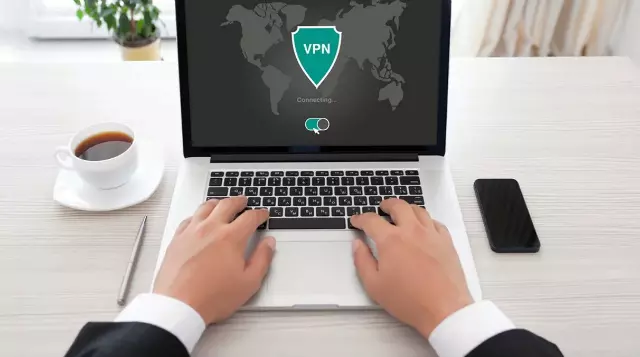
How does a VPN Work?
In the most general terms, a VPN hides the users’ IP address by directing Internet traffic to specially designed remote servers through a series of secure connections. In this way, the user’s IP address is replaced by that of the VPN server. Any data coming out of the user’s computer is encrypted by the VPN client and sent to a destination point through a specific “tunnel”. In turn, the data is sent back to the device in an encrypted form, and the VPN client decrypts it. Thus, this technology is primarily aimed at two objectives: hiding the users’ IPs and encrypting the data they send and receive from the Internet.
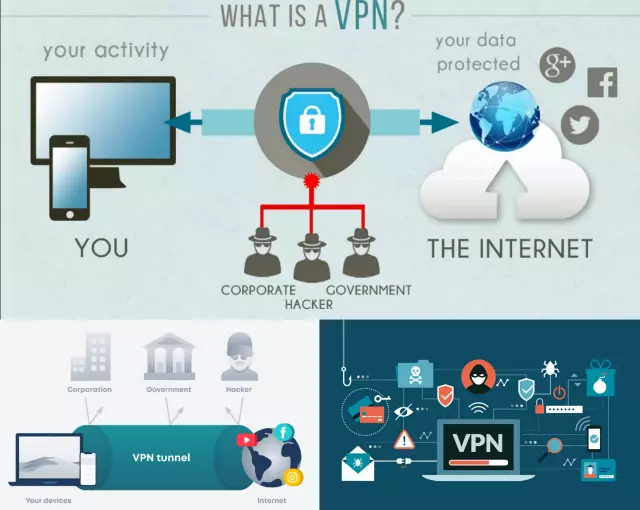
VPN hides the users’ IP address and makes the Internet-eerfing secure
Which process is used to protect transmitted data in a VPN?
The process that is primarily used to protect VPN user data is encryption. It transforms the source data using a complex cipher that only the VPN client and servers can decrypt. Naturally, any third party who intercepts one’s data will see it in encrypted form, which will not make sense in the absence of a key. In this way, the VPN makes the users’ browsing data unreadable and incomprehensible to third parties with the purpose of protecting it.
A VPN is used primarily for what purpose?
People can use VPN for the most various purposes. Here are a few of the most common ones:
Hide Your Browsing Activity
No matter how trustworthy your Internet provider is, there is always a possibility of it sharing your browser activities with advertisers, government agencies, or other third parties. Besides, if the provider’s servers are hacked, your data will be under threat of exposure as well. Not to say about the instances when you use unprotected public Wi-Fi networks to access the Internet. In all these situations, your personal data, from emails to passwords, is at risk of disclosure. VPN will help you to hide it.
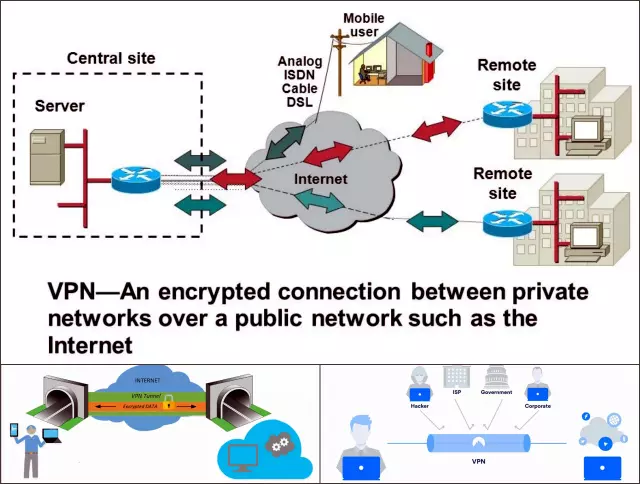
VPN is used for hiding browsing activity and to get access to geo-restricted websites
Bypass Internet Censorship
Today, a significant number of states are ruled by authoritarian and semi-authoritarian governments. Regimes often restrict the Internet freedom of citizens with the purpose of ensuring themselves from protests. Even some democracies may take absurd censorship measures to restrict people’s access to specific websites. VPN circumvents these restrictions and guarantees freedom of information online.
Access Geo-restricted Websites
Some websites often make their content available only in particular regions. The most obvious example of this trend can be seen in the policy of streaming platforms like Netflix, which may offer completely different content in the US, UK, and Eastern Europe. VPN allows users to hide their real location and connect to servers abroad to access regionally limited websites.
Why Would a Small Business Want a VPN?
VPN can be useful for both individuals and organizations. Here are some aspects through which this technology can benefit small businesses:
- Improving privacy and security. For companies, it is essential to protect their corporate information from hacking and leaks. By encrypting their data, VPN can help them with this objective.
- Providing remote access. Company employees can use VPN to connect to the corporate network through a remote server. Nowadays, companies often resort to remote work. With VPN, employees can work from their homes or any other places as if they were in an office.
- Ensuring geo-independence. As noted above, some countries may restrict access to specific web resources in their territory. Meanwhile, as part of globalization processes, companies are increasingly entering into partnerships abroad, making employees travel to various parts of the world. VPN allows them to access the web resources needed for remote work as if they were in their home countries.
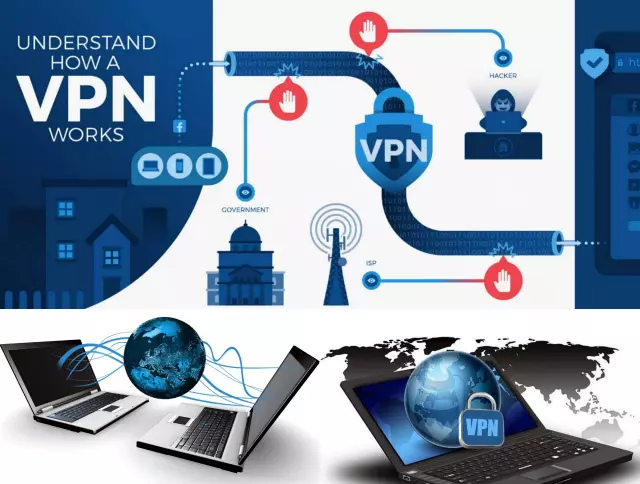
VPN is also useful for small business
What is a P2P VPN
Speaking of the VPN, it is necessary to mention such a specific type as P2P, which stands for “peer-to-peer.” It differs from the classic VPN model due to the lack of centralized servers. Instead, the users of such VPNs are interconnected. A user who downloads a file simultaneously becomes its distributor, which greatly simplifies the download process for other network visitors. Thus, P2P is used primarily for file-sharing operations.
Enhanced Privacy and Security: The Role of VPNs in Safeguarding Online Data
In an age where internet privacy and cybersecurity have become paramount, Virtual Private Networks (VPNs) have emerged as indispensable tools for safeguarding online data. Here, we explore the pivotal role VPNs play in enhancing privacy and security:
- Data Encryption: VPNs use robust encryption protocols to scramble your internet traffic, making it extremely difficult for anyone to intercept and decipher your data. This encryption ensures that sensitive information, such as login credentials and personal details, remains secure.
- Anonymous Browsing: VPNs route your connection through remote servers, masking your IP address. This anonymity prevents websites, advertisers, and potential cybercriminals from tracking your online activities and location.
- Protection on Public Wi-Fi: When connected to public Wi-Fi networks, you’re vulnerable to various cyber threats. VPNs shield your data from hackers lurking on unsecured networks, ensuring that your private information remains private.
- Geo-spoofing: VPNs enable you to access content that might be geo-restricted in your region. By connecting to servers in different countries, you can bypass these restrictions and enjoy a more open internet.
- Bypassing Internet Censorship: In countries with strict online censorship, VPNs serve as a lifeline for unrestricted access to the global internet. Users can access blocked websites and communication apps.
- Protection from Cyber Threats: VPNs help protect against Distributed Denial of Service (DDoS) attacks, which can overwhelm your connection. The VPN server absorbs the malicious traffic, keeping your online activities uninterrupted.
- Business Applications: For small businesses and corporations, VPNs are crucial for secure remote access, protecting sensitive corporate data, and ensuring secure communication.
- Privacy in Peer-to-Peer (P2P) Activities: VPNs are commonly used for P2P file sharing, offering anonymity and security during torrenting activities.
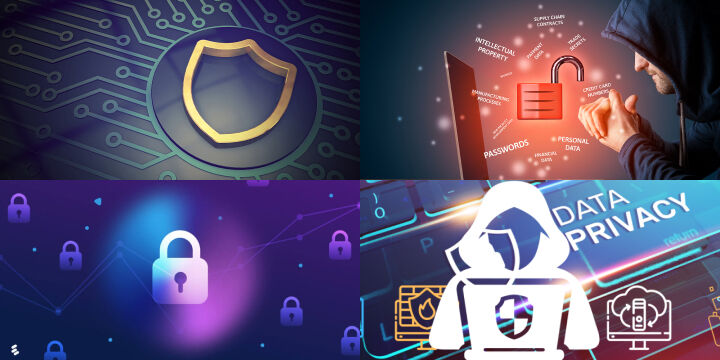
In an era of evolving cyber threats and a growing awareness of the importance of privacy, VPNs are essential tools for individuals and businesses. They provide a secure tunnel for online activities, ensuring that your data remains private, your identity is protected, and your internet experience is free from restrictions and threats. VPNs empower users with the control and security needed to navigate the digital landscape confidently.
Final Words
VPN technology can be used for achieving a variety of goals, both by individuals and organizations. Creating encrypted communication tunnels between devices and servers allows users to maintain privacy, secure browsing, circumvent Internet censorship, and access geo-restricted content. It is an indispensable tool for anyone who wants to make sure that their privacy remains intact in the information age.

